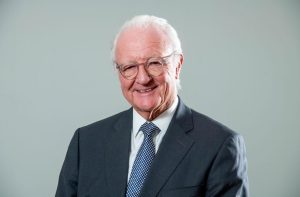In Brief: Crawshaw Group; Deloitte; Acetarc Engineering; Reflex Systems

BUTCHER shop chain Crawshaw Group today said it had seen a rise in sales following the Christmas trading period and expects strong end of year results.
The Rotherham-based group which operates around 20 butchers shops and two meat distribution centres covering Yorkshire and the Humber, Lincolnshire and Nottinghamshire, said management actions are continuing to deliver a progressively improving result, with like for like sales for the seven weeks to December 29 2013 up 21%.
The group said that with costs very much under control, it expects the out turn for the full year to the end of January 2014 to be materially higher than the current market forecast.
Crawshaw also announced it has opened a further retail outlet, in the new Sheffield covered market, which is trading well, and said it is close to completing the lease on a retail premises, also in Sheffield.
:::
STRUCTURAL reform of the banking sector will be one of the key regulatory themes of 2014, according to Deloitte.
The Deloitte Centre for Regulatory Strategy has identified the top 10 regulatory changes that will affect banks, insurers and investment managers next year. The themes are included in the Centre’s latest report – ‘Our Outlook for financial markets regulation and supervision’ – and include restructuring the (rest of the) financial system; capital and liquidity; wholesale conduct risk and banking union.
Steve Williams, financial services partner for Deloitte in Yorkshire, said: “Six years have passed since the start of the financial crisis. Banks, insurers and other financial services companies are having to deal with a fundamental overhaul of regulation and supervisory approaches – but the sobering fact is that the job is by no means done.
“2014 will be a busy year. Banks will need to implement the new capital and liquidity framework, and the ECB will be intent on establishing a new European supervisory regime. Closer to home, conduct risk in both the wholesale and retail sector will remain at the top of the agenda. Over-arching this, a multitude of new regulations will require banks to re-engineer their legal entity structure and change the way they operate across borders.”
:::
AN ENGINEERING company has received funding support enabling it to employ new staff and upgrade its computing systems.
Keighley-based Acetarc Engineering approached the Rising Stars – part of Bradford Council’s enterprise programme. Through support from Rising Stars and Bradford Council’s Capital Investment Fund, Acetarc was awarded a £4,000 grant which supported an investment of £25,000 in a new computer system. As a result, the firm has been able to win new contracts which led to the creation of four more jobs in the production department.
Founded in the mid 1960s by two brothers, Acetarc was one of the first engineering companies in the area to offer machining, welding and fabrication services from a single supplier. Over recent years, it has experienced significant growth, moving to bigger premises and following a boost in export sales and international trade has seen its turnover double.
Peter Burrell, Acetarc’s director, said: “Our Rising Stars Adviser helped us focus on the investment needed, and along with support from Bradford Council spurred us on to improve our production management systems.”
:::
REFLEX Systems, the Rotherham-based fire and security systems specialist, has completed a major project to upgrade the fire detection systems for one of the UK’s leading hotel groups – QMH UK.
The contract was carried out over a four-week period, which involved upgrading the fire detection systems on 18 hotels, including 12 Holiday Inns, three Best Western hotels and three Crowne Plazas, stretching from Plymouth to Glasgow.
Paul Buttery, fire and security business manager of Reflex Systems, said: “This latest upgrade shows a great commitment to the continued enhancement of their fire safety systems by QMH UK. It was a fairly complex operation to upgrade all their systems and vital that we could co-ordinate the integration of the new with the existing system infrastructure with the minimum amount of disruption to normal operations.”







